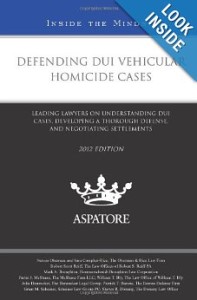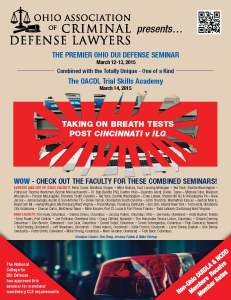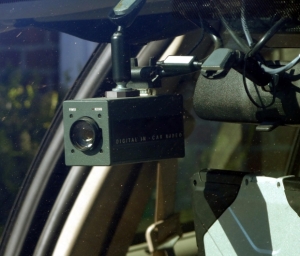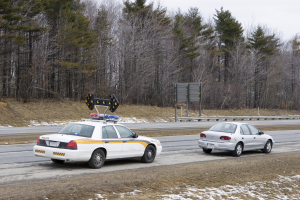 Ohio has several variations of what is commonly known as vehicular homicide. Generally, vehicular homicide is causing the death of another person while operating a vehicle. In the Ohio Revised Code, there are actually three separate offenses: (1) Aggravated Vehicular Homicide; (2) Vehicular Homicide; and (3) Vehicular Manslaughter. The offenses defined in the Ohio Revised Code are distinguished by the driver’s conduct (actus reus) and the driver’s state of mind (mens rea). The particular offense with which a defendant is convicted makes a substantial difference in the sentence imposed by the court.
Ohio has several variations of what is commonly known as vehicular homicide. Generally, vehicular homicide is causing the death of another person while operating a vehicle. In the Ohio Revised Code, there are actually three separate offenses: (1) Aggravated Vehicular Homicide; (2) Vehicular Homicide; and (3) Vehicular Manslaughter. The offenses defined in the Ohio Revised Code are distinguished by the driver’s conduct (actus reus) and the driver’s state of mind (mens rea). The particular offense with which a defendant is convicted makes a substantial difference in the sentence imposed by the court.
Articles Tagged with DUI/OVI
Ohio DUI/OVI Seminar-Best In The Midwest
 ‘Best in the Midwest’ has become one of the slogans associated with the annual DUI/OVI seminar presented by the Ohio Association of Criminal Defense Lawyers (OACDL). A speaker from another state poked fun at the slogan by asking, “isn’t this the only DUI seminar in the Midwest?” I’m sure there are plenty of other DUI seminars in the Midwest, but this is the only one I know of which is nationally recognized and approved for credit from the National College for DUI Defense (NCDD) and the national DUI Defense Lawyers Association (DUIDLA). The seminar is two-and-a-half days and draws speakers and attendees from around the country. Whether it’s the best or not, the seminar held last week in Columbus was outstanding.
‘Best in the Midwest’ has become one of the slogans associated with the annual DUI/OVI seminar presented by the Ohio Association of Criminal Defense Lawyers (OACDL). A speaker from another state poked fun at the slogan by asking, “isn’t this the only DUI seminar in the Midwest?” I’m sure there are plenty of other DUI seminars in the Midwest, but this is the only one I know of which is nationally recognized and approved for credit from the National College for DUI Defense (NCDD) and the national DUI Defense Lawyers Association (DUIDLA). The seminar is two-and-a-half days and draws speakers and attendees from around the country. Whether it’s the best or not, the seminar held last week in Columbus was outstanding.
Forensic Gas Chromatography For Lawyers
 Last week, I completed a short course in gas chromatography. Completing the course reminded me of what Stephen Covey used to say: “To know and not to do is really not to know.” He is so right. It’s one thing to know the law of blood and urine testing. It’s a very different thing to know the science of blood and urine testing. To know the science, you have to do the science, and lawyers typically do not have the opportunity to do the science. Now, however, lawyers get to do the science of gas chromatography in a short course presented by the American Chemical Society.
Last week, I completed a short course in gas chromatography. Completing the course reminded me of what Stephen Covey used to say: “To know and not to do is really not to know.” He is so right. It’s one thing to know the law of blood and urine testing. It’s a very different thing to know the science of blood and urine testing. To know the science, you have to do the science, and lawyers typically do not have the opportunity to do the science. Now, however, lawyers get to do the science of gas chromatography in a short course presented by the American Chemical Society.
Dash Cam vs Officer Testimony In Ohio DUI/OVI Cases
 If an officer’s testimony about a traffic stop is not corroborated by the officer’s cruiser video, how do judges rule on the justification for a traffic stop? Once a judge makes a ruling, under what circumstances might that ruling be overturned by an appellate court? A recent case decided by the Tenth District Court of Appeals in Columbus, Ohio illustrates the discretion judges are given regarding evidentiary issues in OVI motion hearings.
If an officer’s testimony about a traffic stop is not corroborated by the officer’s cruiser video, how do judges rule on the justification for a traffic stop? Once a judge makes a ruling, under what circumstances might that ruling be overturned by an appellate court? A recent case decided by the Tenth District Court of Appeals in Columbus, Ohio illustrates the discretion judges are given regarding evidentiary issues in OVI motion hearings.
Recent Erosion Of Fourth Amendment Rights May Impact Ohio DUI/OVI Cases
Suppos e an officer detains a person for violating a traffic law and it turns out the person really didn’t violate the law: the officer was simply mistaken about what the law says. Until recently, one would expect that any evidence obtained after the mistaken detention would be thrown out. In a recent case, however, the U.S. Supreme Court concluded any evidence obtained after the officer mistakenly detained the person is not excluded from trial, so long as the officer’s mistaken belief about the law was reasonable.
e an officer detains a person for violating a traffic law and it turns out the person really didn’t violate the law: the officer was simply mistaken about what the law says. Until recently, one would expect that any evidence obtained after the mistaken detention would be thrown out. In a recent case, however, the U.S. Supreme Court concluded any evidence obtained after the officer mistakenly detained the person is not excluded from trial, so long as the officer’s mistaken belief about the law was reasonable.
 Columbus OVI/DUI Attorney Blog
Columbus OVI/DUI Attorney Blog

